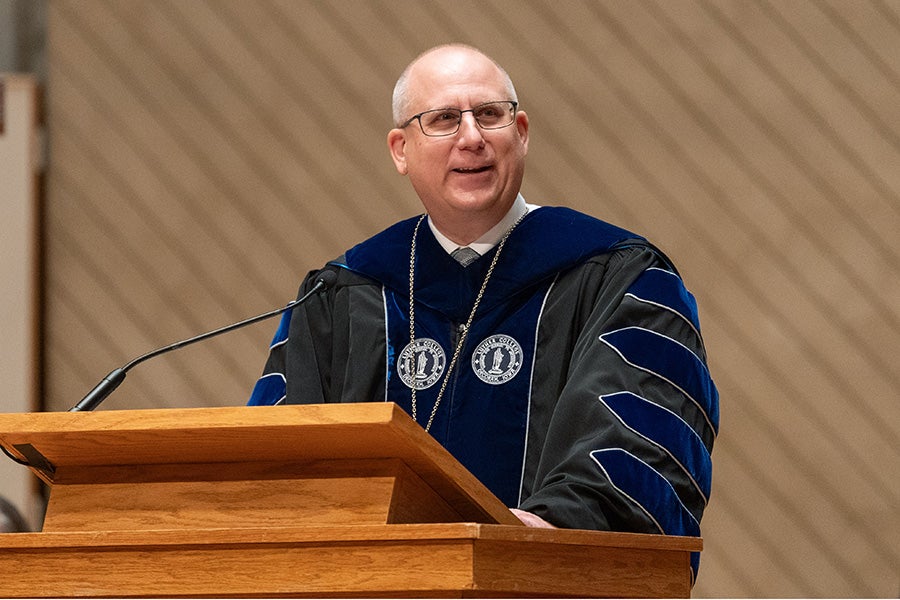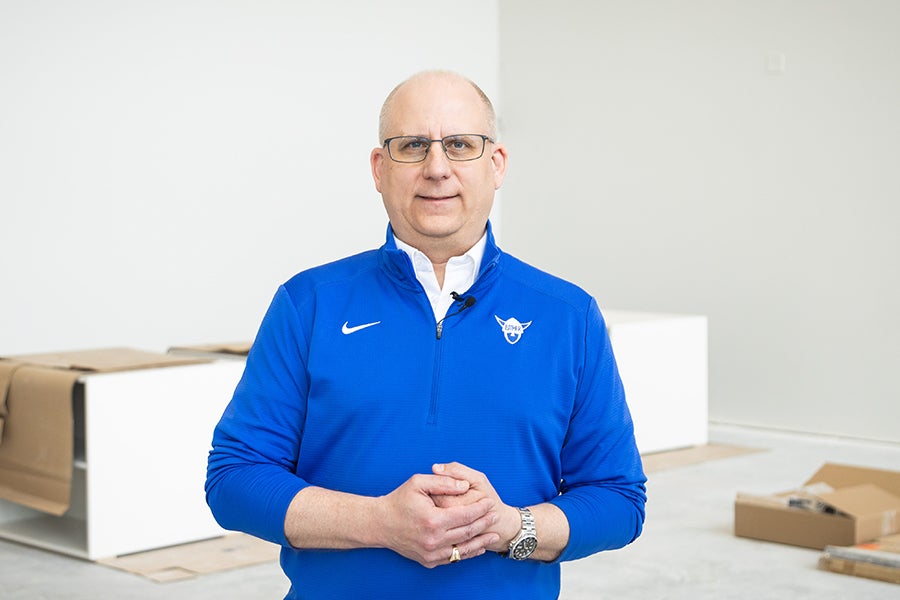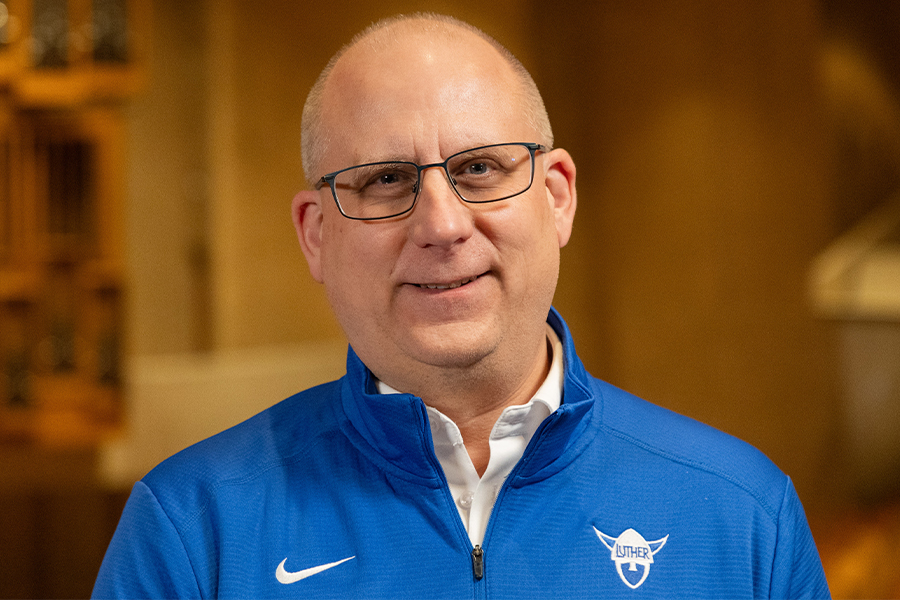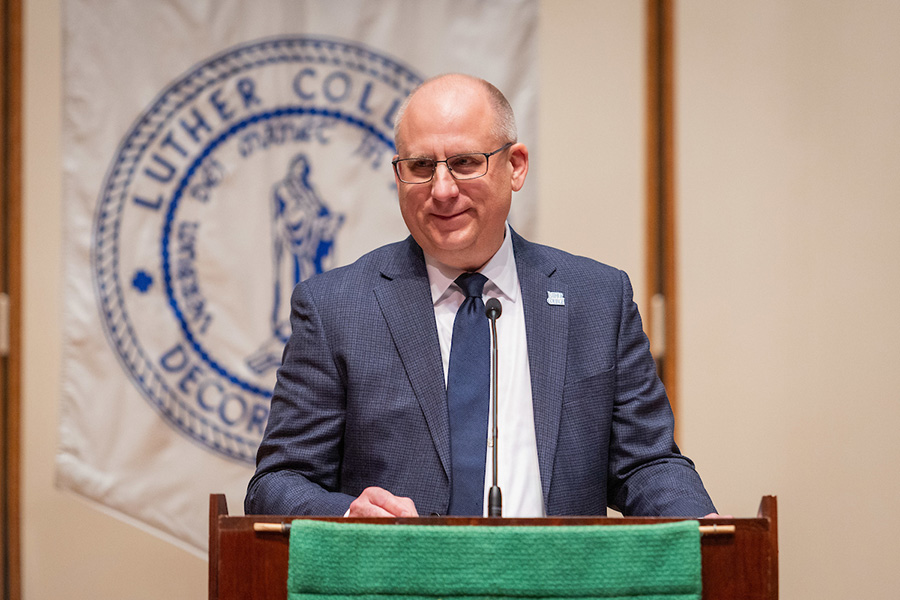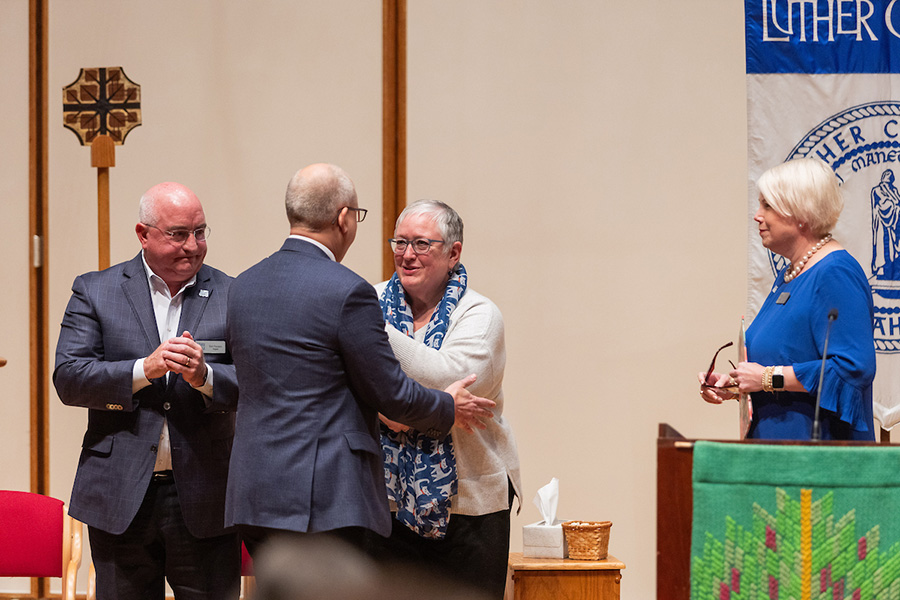Presidential Communications
Video Messages from President Chamberlain
The Latest News
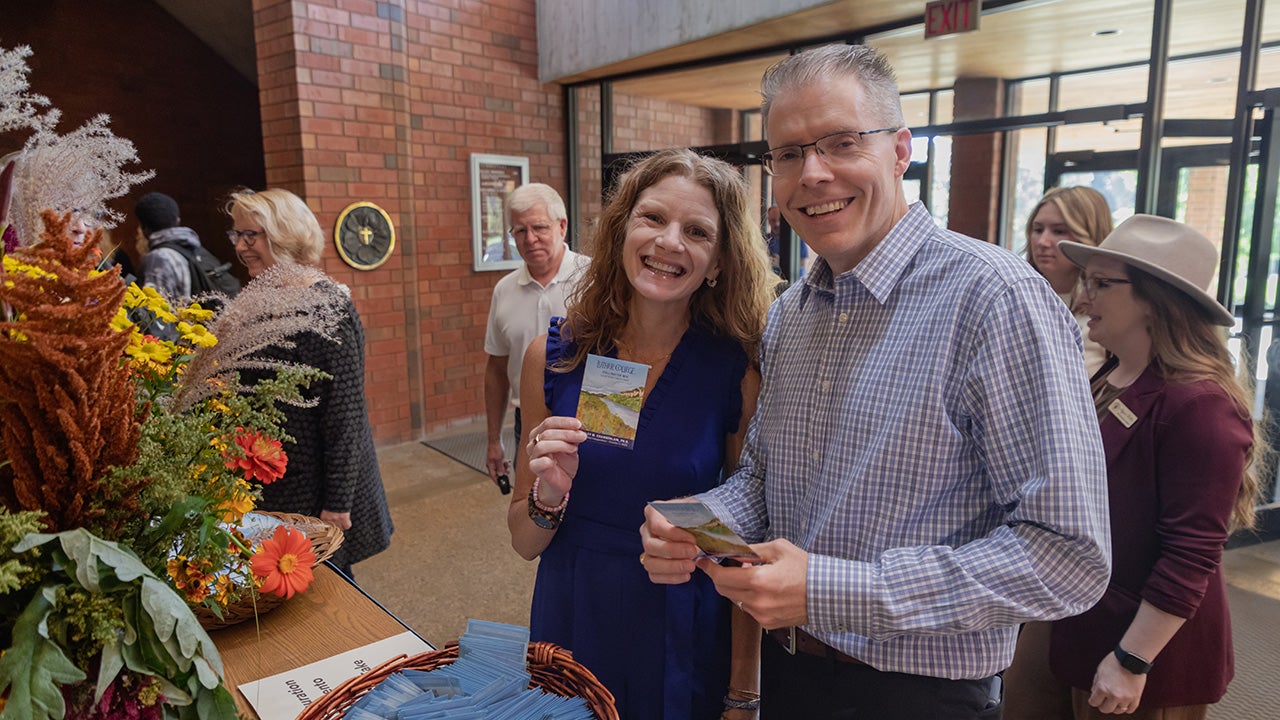
The act of planting seeds underscores the inauguration theme of “For the Common Good.”

The ceremony is free and open to the public.
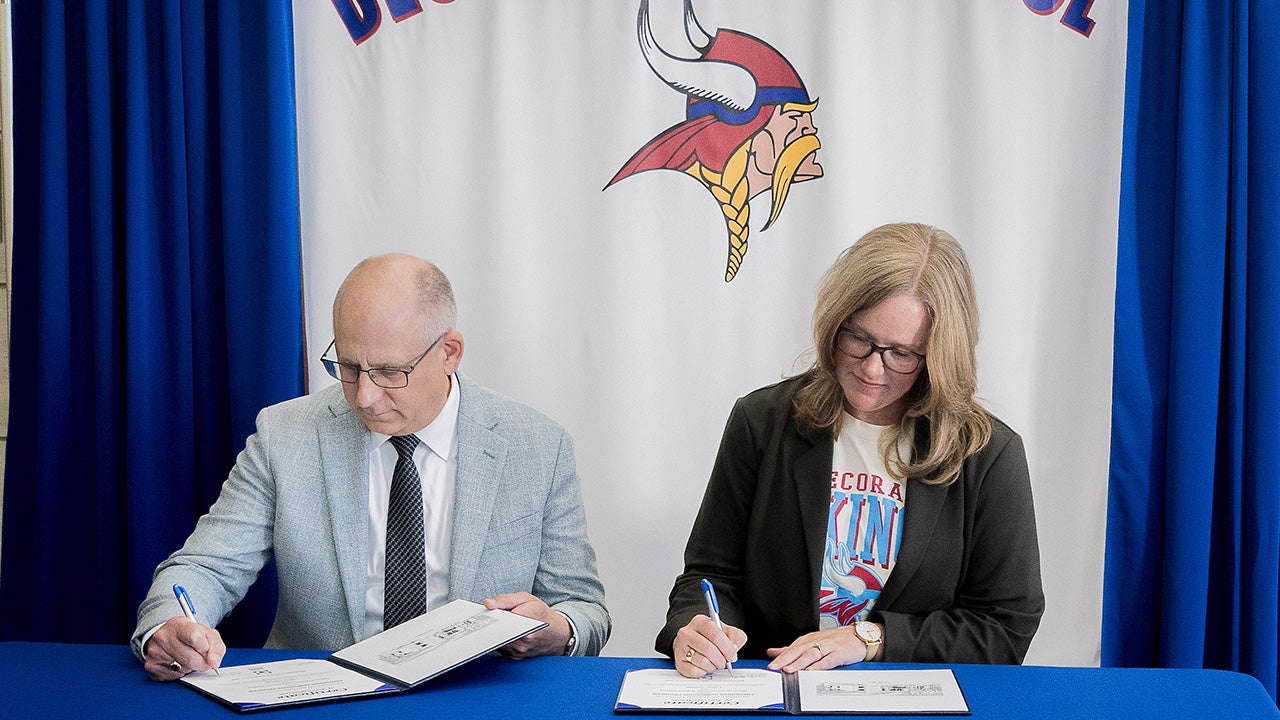
The Preferred Admission Partnership opens doors for Decorah students to pursue an excellent academic opportunity close to home.
Letters from President Chamberlain
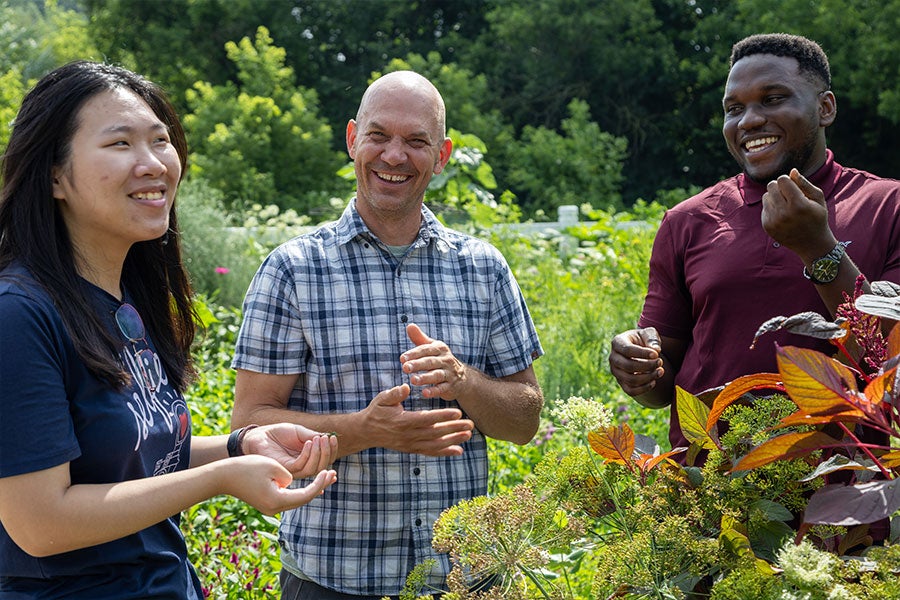
“Luther is a place of intersection. It’s a community called and empowered to serve the neighbor so that all may flourish.”
